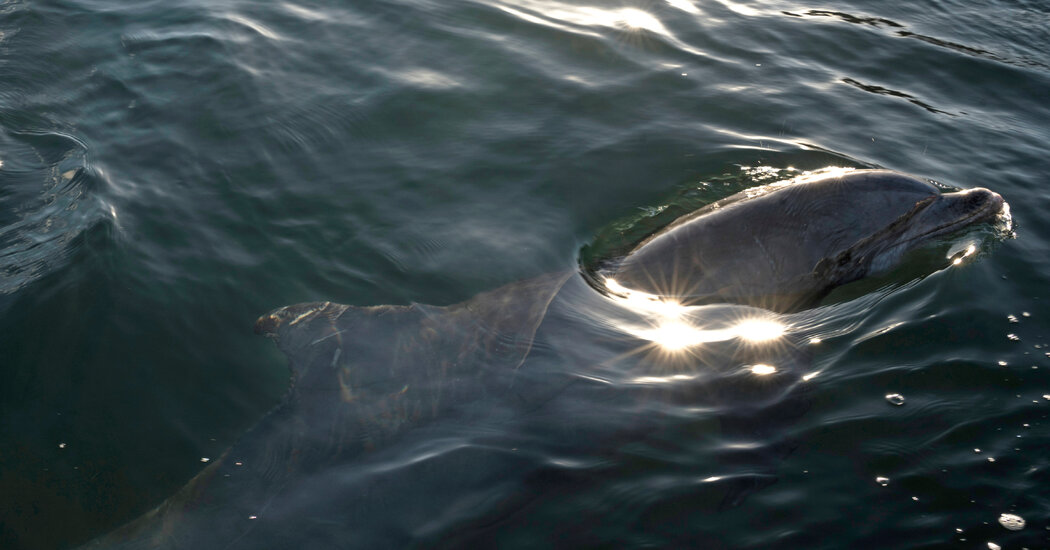Scientists studying bottlenose dolphins found polyester and other plastics in the breath of every animal they tested.
Scientists have found plastic pollution almost everywhere they have looked. In clouds. On Mount Everest. In Arctic snow.
Now, for the first time, tiny plastic particles have been detected in the breath of dolphins.
The findings, published on Wednesday in the peer-reviewed journal PLOS One, point to the ubiquitousness of plastic waste in the environment. Each year, nearly 2 million tons of plastic end up in world’s oceans.
Plastic also floats in the air, and the new study suggests that inhalation may be a significant way dolphins and other marine mammals are exposed to tiny plastic particles, called microplastics. Those particles, which are formed when plastic breaks down, have been linked to inflammation and cell damage, and can contain harmful chemicals.
“This really highlights how polluting plastic is,” said Leslie B. Hart, a co-director of the Center for Coastal Environmental and Human Health at the College of Charleston, in South Carolina, who led the research. “We have plastic everywhere. There’s really no safe place to get away from it.”
Other animals are known to breathe in plastics, though research is still sparse. Last year, scientists in Japan detected microplastics in the lungs of wild birds there. And researchers have estimated that people can inhale or ingest more than 100,000 microplastic particles a year from the food and water they consume, and from the air they breathe.
But dolphins have become a common subject of pollution research because they’re found around the world, including in heavily populated coastal areas. That makes them bellwethers of exposure to pollution and other environmental hazards.
